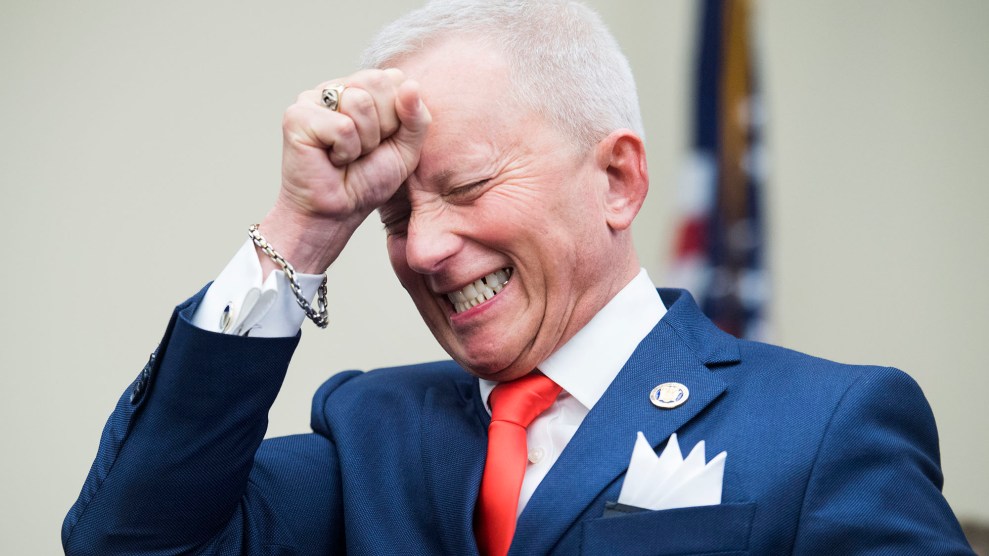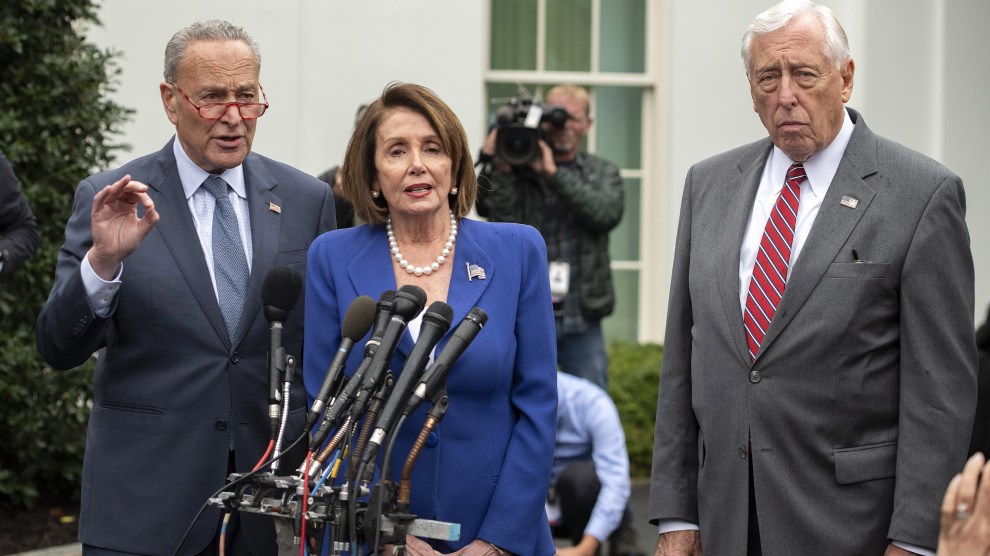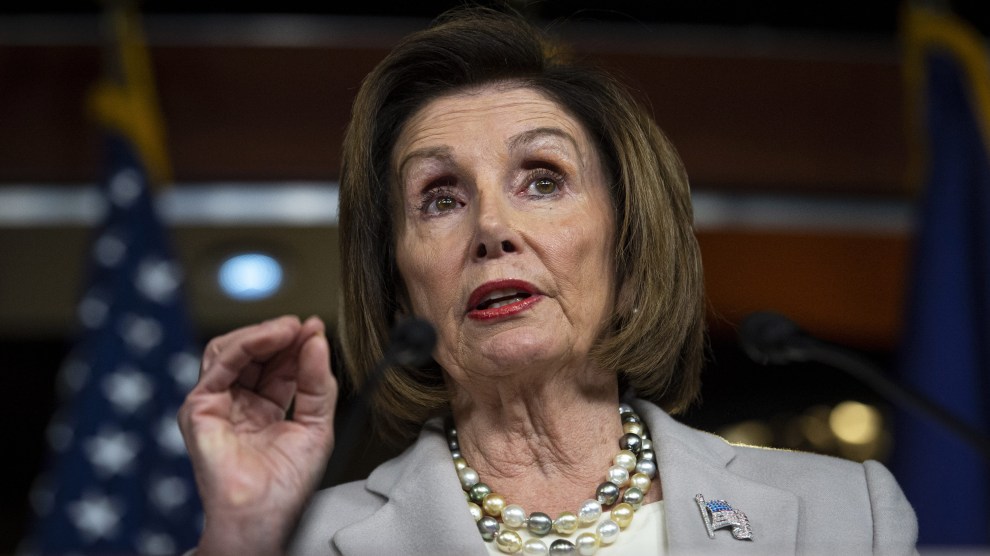
Rep. Jeff Van Drew (D-NJ)Tom Williams/CQ Roll Call via AP
In a display of unity that would have been unthinkable just two months ago, 231 House Democrats voted Thursday morning to formalize the impeachment process. Over the summer, the party seemed hopelessly split on the issue. That all changed after the emergence in September of a whistleblower complaint revealing President Donald Trump’s efforts to pressure Ukraine to launch investigations against his political enemies.
This week, several longtime holdouts from districts Trump won—Joe Cunningham of South Carolina, Ron Kind of Wisconsin, Kendra Horn of Oklahoma, Anthony Brindisi of New York, and Jared Golden of Maine—announced their support for the impeachment resolution. Democrats also had the backing of Michigan independent Justin Amash, a one-time Freedom Caucus conservative who left the Republican Party earlier this year after calling for impeachment.
Still, two Democrats voted against the impeachment probe Thursday. Here’s who they are:
Jeff Van Drew
One of four New Jersey Democrats to flip GOP congressional seats last year, Van Drew has been particularly skeptical about impeachment. “If we are going to have an impeachment inquiry and procedure [leading up to the] 2020 elections, it will be very counterproductive,” Van Drew said in September, according to the Press of Atlantic City. Van Drew, whose district Trump won by 5 points, is among the most conservative members of the House Democratic caucus. He told the Philadelphia Inquirer that impeachment could “secure the presidency for Donald Trump” and, according to the paper, he echoed a series of GOP talking points about the Ukraine scandal. This week, he told Politico that he was leaning toward a “no” vote. “I didn’t know that it was really necessary at this point,” he said.
Collin Peterson
Like Van Drew, Peterson is one of the most conservative Democrats in Congress. Unlike Van Drew, he’s been on Capitol Hill for decades. His rural Minnesota district has moved sharply to the right in recent years—Trump won it by 30 points in 2016, and Peterson’s recent victories have been narrow ones. “If anyone thinks a partisan impeachment process would constrain President Trump, they are fooling themselves,” he told the Detroit Lakes Tribune in September. “Without significant bipartisan support, impeachment proceedings will be a lengthy and divisive action with no resolution.”


















